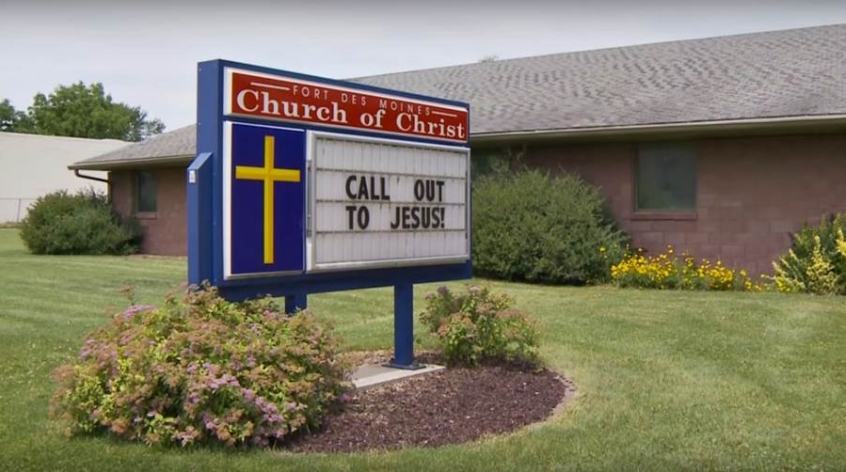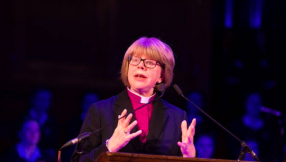
The assistant attorney general of the U.S. state of Iowa asked a federal district court on Wednesday to dismiss the lawsuit filed by a church challenging the state's transgender bathroom policy, saying the church's fears of censorship and punishment are unfounded.
Iowa Assistant Attorney General Molly Weber told the judge the state's civil rights commission is unlikely to punish the Fort Des Moines Church of Chris tfor not following the state's transgender bathroom policy.
However, he said there might be some instances when the church would be asked to follow the Iowa Civil Rights Act, which was expanded to bar discrimination based on sexual orientation or gender identity, according to The Des Moines Register.
While places of worship in Iowa such as churches and synagogues are exempted from the law's prohibition of discrmination, the Iowa Civil Rights Commission said they are bound by it if these religious bodies engage in non-religious activities such as serving as an independent daycare centre or polling place within their premises.
The church filed a lawsuit last July against the commission to stop the implementation of the expanded law.
But the Alliance Defending Freedom (ADF), which is representing the church in the lawsuit, said Weber's answer still worries the church's pastor, who said posting the church's bathroom policy or speaking about human sexuality could trigger investigation by the commission.
ADF's Steve O'Ban told Judge Stephanie Rose that the religious exemption gives the commission's investigators too much leeway on what constitutes "religious activity."
"You don't sift through the activities and weigh whether one is religious and one is not. Are they going to sit there with a checklist?" he said.
The Iowa commission first published a brochure about the law.
"Does this law apply to churches?" the brochure reads. "Sometimes. Iowa law provides that these protections do not apply to religious institutions with respect to any religion-based qualifications when such qualifications are related to a bona fide religious purpose.Where qualifications are not related to a bona fide religious purpose, churches are still subject to the law's provisions. (e.g. a childcare facility operated at a church or a church service open to the public)."
After a public uproar, the commission revised the brochure and said that religious activities by a church are exempt from the Iowa Civil Rights Act.
"The Iowa Civil Rights Commission has never considered a complaint against a church or other place of worship on this issue," said director Kristin Johnson last July. "This statute was amended to add these protected classes (sexual orientation and gender identity) in 2007 and has been in effect since then."
She added, "The Iowa Civil Rights Commission has not done anything to suggest it would be enforcing these laws against ministers in the pulpit, and there has been no new publication or statement from the ICRC raising the issue. The Commission regrets the confusion caused by the previous publication."
Weber and Michelle Mackel, a Des Moines city attorney, asked the court to dismiss the church's lawsuit, saying the church's fears of censorship and punishment are unfounded.
"This is a case about unreasonable fears," Weber told the judge.
O'Ban is asking the court to issue an injunction to bar the commission from enforcing the law against the church.
"This is the first case we're aware of where a government authority is trying to apply the state's public accommodations law to a church," O'Ban said.













